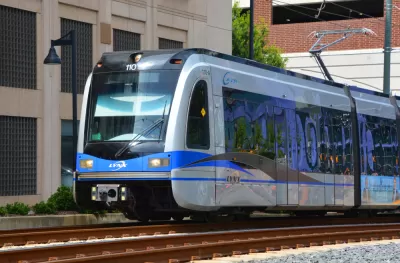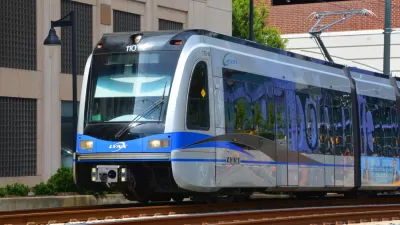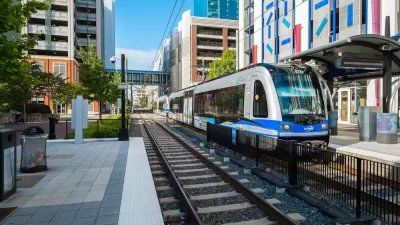The Charlotte Area Transit System must fully staff its Rail Operating Control Center or else. It’s only the latest challenge for the city’s troubled light rail transit system.

The North Carolina Department of Transportation (NCDOT) recently sent a letter informing the Charlotte Area Transit System (CATS) that it must bring its Rail Operating Control Center (ROCC) to full staffing or else it must cease operations, according to an article by Genna Contino.
NCDOT recently performed a surprise inspection, finding the ROCC operated by one staff member. “It’s standard for at least two controllers to work at the same time to run both Charlotte’s Gold Line and Blue Line trains efficiently, the NCDOT inspection found,” writes Contino. “It’s preferable for a rail controller chief to also be working with them, interim CATS CEO Brent Cagle said.”
Cagle is on the record saying that the ROCC will be fully staffed within three to six months. A mandatory overtime schedule will maintain staffing and service in the meantime.
The staffing shortage at the ROCC was precipitated by the firing of the light rail controller Terry Creech on duty at the time of the Blue Line derailment in May 2022, according to an earlier paywalled article published by the Charlotte Observer.
The derailment is creating all sorts of trouble for CATS, however. A recent report called for the CATS fleet of light rail trains to be repaired with urgency. A March article by Greg Lacour called the situation at CATS a “train wreck.”
The Charlotte experience is another example of an ongoing crisis with the service and maintenance of public transit in the United States, as declining revenues and stagnant ridership coincide with operator shortages and perceptions of increased crime on transit systems all over the country.

Alabama: Trump Terminates Settlements for Black Communities Harmed By Raw Sewage
Trump deemed the landmark civil rights agreement “illegal DEI and environmental justice policy.”

Planetizen Federal Action Tracker
A weekly monitor of how Trump’s orders and actions are impacting planners and planning in America.

Why Should We Subsidize Public Transportation?
Many public transit agencies face financial stress due to rising costs, declining fare revenue, and declining subsidies. Transit advocates must provide a strong business case for increasing public transit funding.

Understanding Road Diets
An explainer from Momentum highlights the advantages of reducing vehicle lanes in favor of more bike, transit, and pedestrian infrastructure.

New California Law Regulates Warehouse Pollution
A new law tightens building and emissions regulations for large distribution warehouses to mitigate air pollution and traffic in surrounding communities.

Phoenix Announces Opening Date for Light Rail Extension
The South Central extension will connect South Phoenix to downtown and other major hubs starting on June 7.
Urban Design for Planners 1: Software Tools
This six-course series explores essential urban design concepts using open source software and equips planners with the tools they need to participate fully in the urban design process.
Planning for Universal Design
Learn the tools for implementing Universal Design in planning regulations.
Caltrans
Smith Gee Studio
Institute for Housing and Urban Development Studies (IHS)
City of Grandview
Harvard GSD Executive Education
Toledo-Lucas County Plan Commissions
Salt Lake City
NYU Wagner Graduate School of Public Service




























